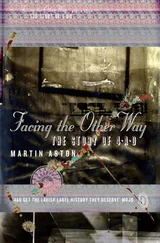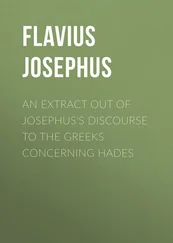“There were no other guests,” I asked, “apart from members of the family?”
“Old Tancred was there — you remember, our instructing solicitor. Not in a professional capacity — as an old family friend. Well, that’s what he told the Coroner. I expect he just slid under the door when he heard there was free booze going — you know what solicitors are like.”
The attentive waiter now placed before Cantrip an enormous steak, surrounded by mushrooms and fried potatoes, murmuring as he did so a few coaxing words in Italian, as if fearing that without encouragement his customer would eat no more than a mouthful: Cantrip applied himself to dispelling these anxieties.
“I imagine,” said Selena, thoughtfully sipping her brandy, “that Mr. Tancred is another person whom Rupert might be anxious to keep on good terms with. Tancred’s may be a rather dozy sort of firm, but they’re very respectable. If I were engaged in dubious business ventures, I believe I might find it quite convenient to be able to say they were acting for me.”
“I’m surprised,” said Timothy, “if Rupert’s activities are as dubious as you seem to think, that Tancred does go on acting for him.”
“I suppose,” said Selena, “that if he refused to act for Rupert he’d risk losing the Remington-Fiske business altogether. He would be more inclined, I dare say, to give the benefit of the doubt to Camilla’s father than to many other clients.”
The presence of the solicitor at Rupert’s luncheon party could easily be attributed, it seemed to me, to no sordid motive on either side, but to a sociable desire on Rupert’s part to dilute the preponderance of femininity. Even with Tancred there, the men would have been outnumbered by five to four.
“No,” said Cantrip, looking up briefly from his steak, “it was an even number. Sorry, I forgot — Dorothea brought her husband. Her second husband, I mean, the Greek one. Constantine whatsisname. He’s a professor of something at Athens University, and this bird on the Scuttle says he writes poetry.”
I happened at this moment to be raising my coffee cup to my lips: I returned it carefully to its saucer, not trusting my hand, at such a moment, to retain its steadiness. “Cantrip,” I said, “you don’t mean that Dorothea’s husband is Constantine Demetriou the poet?”
“I don’t know,” said Cantrip. “That’s his name, and this bird says he writes poetry. Is it something to get steamed up about?”
The mention in connection with the case of a name so distinguished, so deservedly honored throughout the civilized world no less for political fortitude than for literary achievement, was, as my readers may easily imagine, a complete astonishment to me. I had known, of course, that Demetriou had spent the years of his exile in England — indeed, I had several colleagues who were friends of his from that time: I had even been vaguely aware, perhaps, that he had an English wife; but the notion of his being Dorothea’s husband had not crossed my mind for a moment. His full name had been mentioned, I dare say, in her affidavit; but it is a common one in Greece, and there had been no roll of drums or blare of trumpets to mark the greatness of the man referred to.
“Really, Cantrip,” I said, “I should have supposed that even in Cambridge—”
Yet even those who did not share Cantrip’s educational disadvantages were but dimly aware, it seemed, of Demetriou’s eminence: Julia had seen his name in an Anthology of Modern Greek Verse, purchased to improve her acquaintance with that language; Ragwort, well-informed from his earliest years on the affairs of the world, remembered that the poet’s outspokenness had obliged him to leave Greece precipitately during the regime of the Colonels; Selena had heard him spoken of with admiration by my young colleague Sebastian Verity, the customary companion of her idler moments — I would have expected no less of so ardent a Hellenist; Timothy shook his head apologetically.
O tempora, O mores.
“Very well,” I said at last, perceiving how useless were farther reproaches, “on the day of Deirdre’s death, ten people had gathered in Rupert’s flat to take lunch together and afterwards to watch the Boat Race. They happened to include one of the greatest European poets of the twentieth century, of whom none of you, apparently, has ever heard. Very well. Were you able, my dear Cantrip, to gather from your interesting friend any further details of what occurred?”
“They all had lunch on the roof,” said Cantrip, his powers of communication still a little restricted by steak and mushrooms. “Then they sort of drifted down to the drawing-room to watch the start of the race on television. Deirdre was the last one left up there. But Dorothea went up to get some glasses or something, and stayed and chatted for a bit. Then she came back to the drawing-room, and a bit after that there was all this hullabaloo beside the towpath. They didn’t know at first it was anything to do with Deirdre — they thought it was just people getting stirred up about the race. But it wasn’t. That’s all there is to it, really.”
“The question appears to be, then,” I said, “whether any of the party could have returned to the roof unobserved in the interval between Dorothea’s descent to the drawing-room and Deirdre’s more precipitate departure. Is there anything to indicate how long that might have been?”
“The Fairfax twins were on the drawing-room balcony, and they say Dorothea came back just after they’d got their first sight of the boats. And the witnesses on the towpath are pretty definite about Deirdre having fallen just as the boats were going under Barnes Bridge. So it depends how far you can see down river from Rupert’s drawing-room balcony.”
“I’m not sure,” said Selena, gazing thoughtfully into her brandy glass. “It was fairly dark when Julia and I were there. There’s a bend in the river, isn’t there, at Chiswick Steps? I don’t think one could see further than that. Does anyone know how long it would take for the boats to cover the distance between Chiswick Steps and Barnes Bridge?” She looked hopefully at Cantrip, who can generally be counted on to be well-informed on matters of a sporting nature.
“The record’s 3 minutes 43 seconds for that stretch,” said Cantrip. “That was your lot in 1953—cheating, I expect. This year’s time must have been a bit longer — say 4 minutes, at the outside.” He devoured his last fried potato as ravenously as he had the first and looked sadly at his plate.
“It isn’t very long,” I said.
“We are led to believe,” said Julia, “that it is a sufficient time to enable us to make all necessary preparation in the event of a nuclear attack. It must surely be ample, therefore, for a straightforward little murder?”
I perceived that Julia was not readily to be dissuaded from her opinion. I myself, though I did not share it, felt a certain uneasiness: the question of the height of the parapet… it seemed an absurdly obvious point for the police to have overlooked.
“They didn’t,” said Cantrip. He sat back in his chair with his hands clasped behind his head and his elbows pointing upwards, like, sharp strenuous wings.
I raised an eyebrow.
“The highly-trained staff of the Scuttle ,” said Cantrip, “i.e. this bird, did a spot of tireless in-depth investigation, i.e. bought a pint for one of the local fuzz. What the fuzz think is she chucked herself off on purpose. They worked out it couldn’t be an accident, because of the wall being too high, so she must have meant to do it. But they didn’t see any joy in saying that at the inquest — needless distress and all that to the rest of the family, and no good to Deirdre.”
Читать дальше












